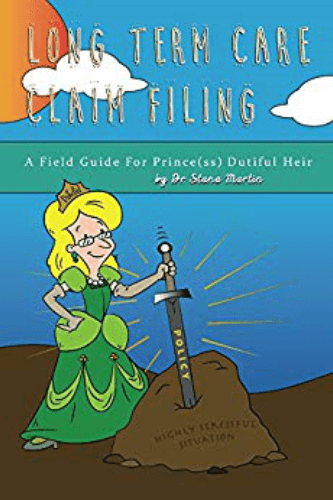In other posts, I have written about using VA benefits, qualifying for Medicaid, self-paying the cost, and buying insurance as ways to pay the high cost of long term care. I have nothing new to add to those – nothing new has cropped up to save all our bacons on this front!
However, there are some lesser known tricks to fund an insurance policy…. Below are what I think are some smarter ways to pay for coverage. These won’t be possible for every consumer. But if you fit the profile for one of these, you should look carefully at them. I recommend someone who specializes in these products, however. There are some nuances to the contracts that you need to be aware of (for instance, there is a vast difference between critical care policies and qualified long term care riders).
1) Using the cash value from an existing whole or universal life policy. It won’t work with term life, but if you have a policy that has cash value, you can exchange that to fully or partially fund a life-and-long-term-care combination product. This reduces or eliminates the premium you have to fund from some other source.
WARNING: do not do this if you truly need the life insurance to pay out. If you have care, you burn thru the death payout first and then start utilizing the insurance company’s money to pay for care. So, if you really need a spouse or children to have the money when you die, this may not be a good strategy.
2) Using an annuity to fund. There are a couple of different options on this. You could simply exchange an annuity that has cash value for a hybrid annuity/ltc contract. Like the life insurance combo above, you are partly using your money and mostly leveraging your money by utilizing the insurance company’s money. Further, if your existing annuity has tax burden on it, you can exchange it and remove the tax consequences. On a $100,000 annuity, this could be a savings of $20,000 in a 20% tax bracket! The second way is only for those between the ages of 59.9 and 72. If you are in that bracket and have retirement funds in an annuity, you can use a sliver of your retirement funds to protect the rest of the nest egg. You no longer have to pay penalties if you take the money out early, and you are spreading the taxes out over time so you minimize them.
WARNING: These are a little complicated. Option # 2 (use annuity when you are not yet retired but over 59.5) really requires that you work with someone who knows what they are doing. There can be significant advantages to it – but you want to be sure it is done right so there are no problems cropping up announced. Further, you have to be sure that utilizing your annuity won’t negatively impact your income in retirement.
3) Use your required minimum distribution. Since the SECURE ACT passed, folks do not have to take a disbursement from their IRAs until they turn 72. But it doesn’t mean you can’t take a disbursement….
WARNING: Use a sliver of your retirement money…not a substantial amount. There are several suitability guidelines on these products. As an example, you have to be certain you are still going to have the income you need in retirement if we utilize part of your net worth. This requires looking at this product in relation to your overall financial plan for retirement. There are other suitability guidelines. But that is your first and most important one to live by.
In general, it is far wiser to take a sliver of your net worth to fund a long term care strategy that will protect the rest of your next egg than to leave the entire nest egg unprotected. If you took it out of the world of insurance, it goes like this: do you want to pay the full cost of the new vehicle yourself? Or would you rather take a sliver of your money to buy a vehicle where the insurance company pays 2/3 of the cost or more? Really, that seems like an easy choice…. Hybrid products are simply a smarter way to self-fund. So if you are considering self-funding anyway…? Why not consider a hybrid product and get creative on how to fund it?
Questions?
Contact - Mrs. LTC
Long Term Care Claims & Insurance
Question about a Claim?
Shopping for coverage?








